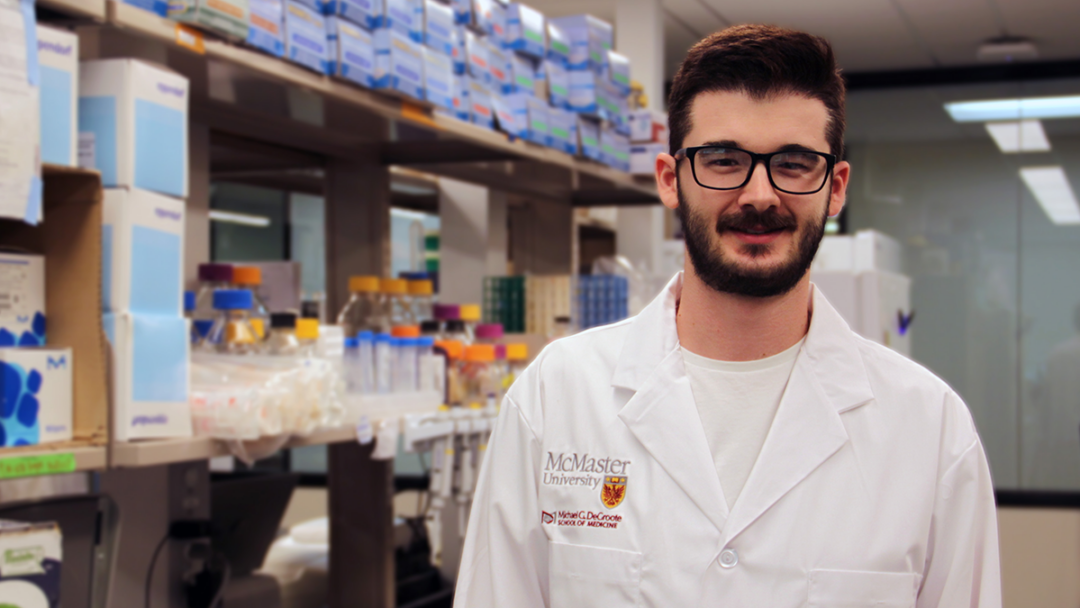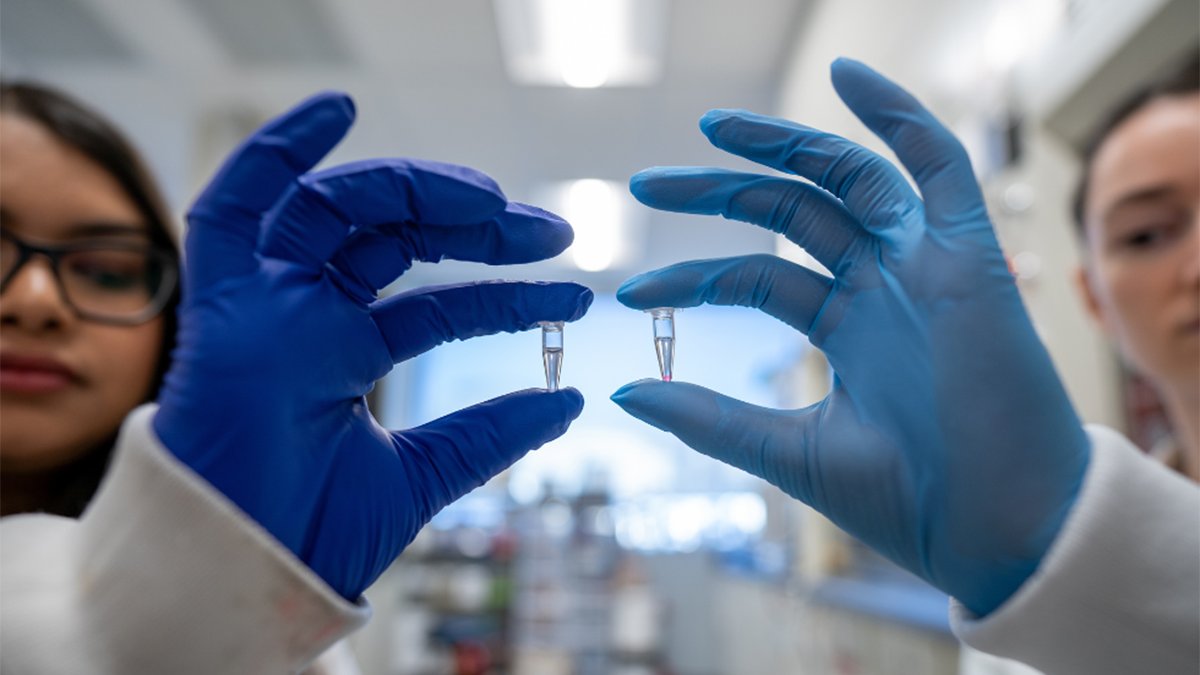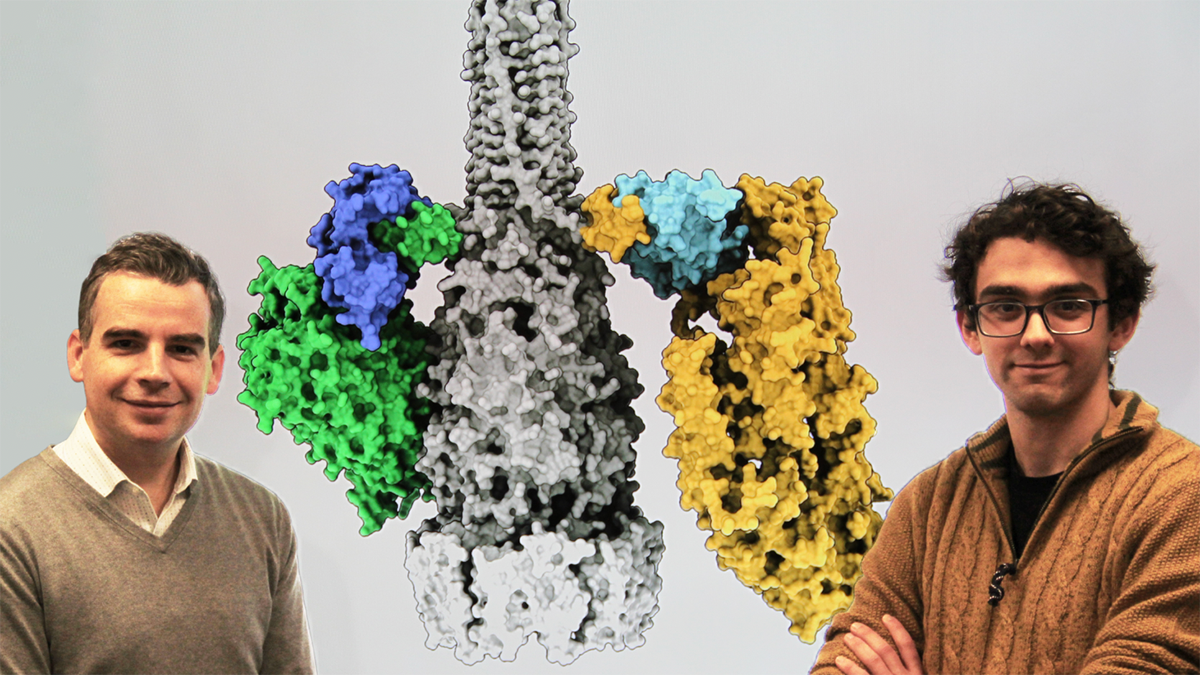McMaster postdoc receives prestigious European fellowship

When Stephen Garrett moved to Hamilton from the UK last January, he was expecting a harsh Canadian winter. But the milder climes of early-2024 helped him quickly feel at home.
So, too, did his new lab mates at McMaster University, where he has since begun a postdoctoral fellowship in the laboratory of John Whitney, an associate professor in the Department of Biochemistry and Biomedical Sciences.
Here on a prestigious fellowship from the European Molecular Biology Organization (EMBO), Garrett is studying toxins that are secreted by bacteria to kill other bacteria. This work, he says, is a natural continuation of his research back home, where he earned a PhD in molecular microbiology from Newcastle University.
“I worked in the laboratory of Tracy Palmer, who studies some of the same bacterial secretion systems that are studied here in the Whitney Lab,” Garrett explains. “The skills that I didn’t have the chance to develop during my PhD are skills that the Whitney Lab is very well equipped to teach me.”
The EMBO Postdoctoral Fellowship Program supports high-potential postdocs from around Europe who are looking to secure research positions at top institutions elsewhere in the world.
While Garrett had earned a postdoc position at McMaster even before he received his EMBO fellowship, the new grant — worth more than $134,000 over a two-year span — is enabling studies into a newly discovered toxin system found in pathogenic Gram-positive bacteria.
Whitney, a member of McMaster’s Michael G. DeGroote Institute for Infectious Disease Research (IIDR), says Garrett’s EMBO-sponsored work could have downstream implications for drug discovery research.
“The toxins that we’re looking at are antibacterial proteins — proteins that kill bacteria,” he explains. “Providing new insights into how these proteins function could inform research into new antibiotics.”
According to university and EMBO records, Garrett is the first McMaster learner to ever receive an EMBO fellowship, which have been awarded to top European postdocs for the past 60 years.
Whitney says such an achievement is tangible recognition of the IIDR’s global reach.
“When you have a world-class international organization like EMBO recognizing the potential of our trainees, it validates the impact and significance of the research happening at McMaster,” he says. “Institutes like the IIDR allow us to attract top-tier talent to the university, and to take on important studies like this.”
Dept. Biochem, Education, Michael G. DeGroote Institute for Infectious Disease Research, ResearchRelated News
News Listing

Department of Medicine ➚
Pain to progress: An impactful history of lupus research and care at McMaster
Collaborations & Partnerships, Education, Research
6 days ago

Brighter World ➚
McMaster research in 2024: From AI innovation to breakthroughs in health care
Research
December 17, 2024

December 17, 2024
